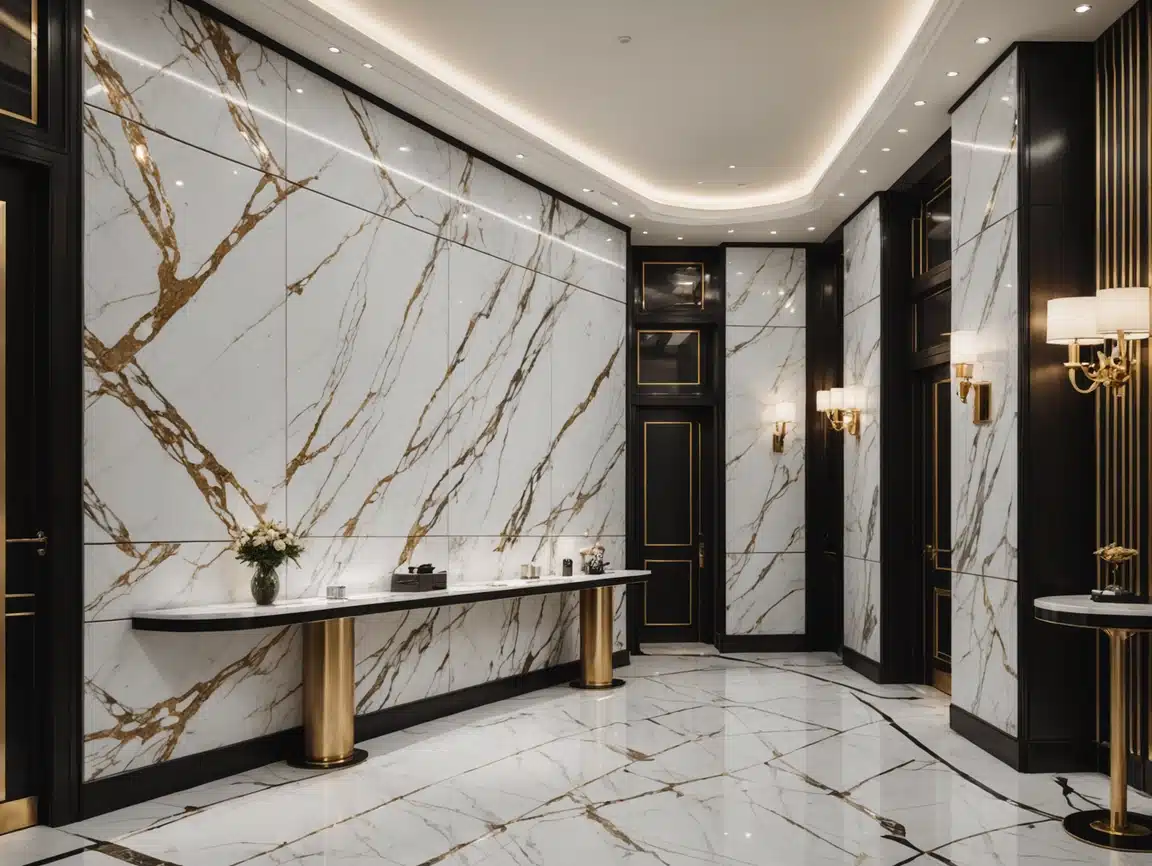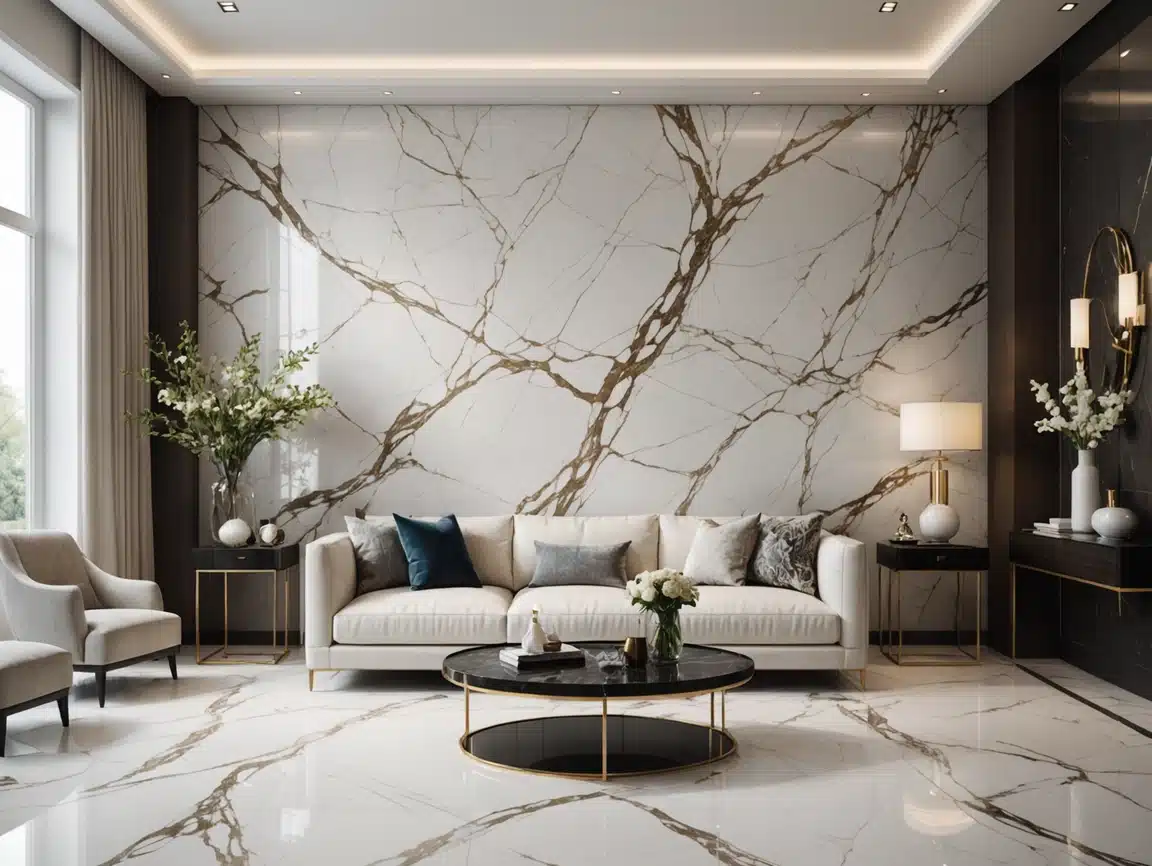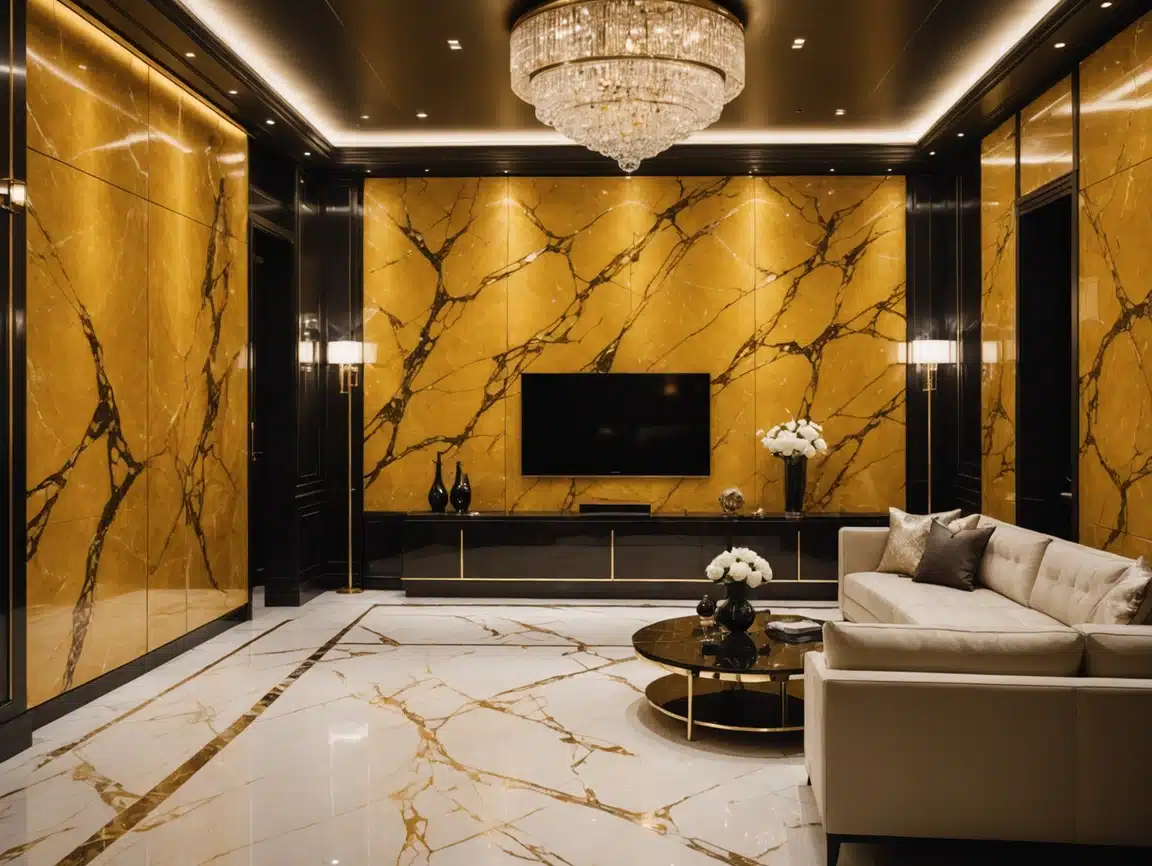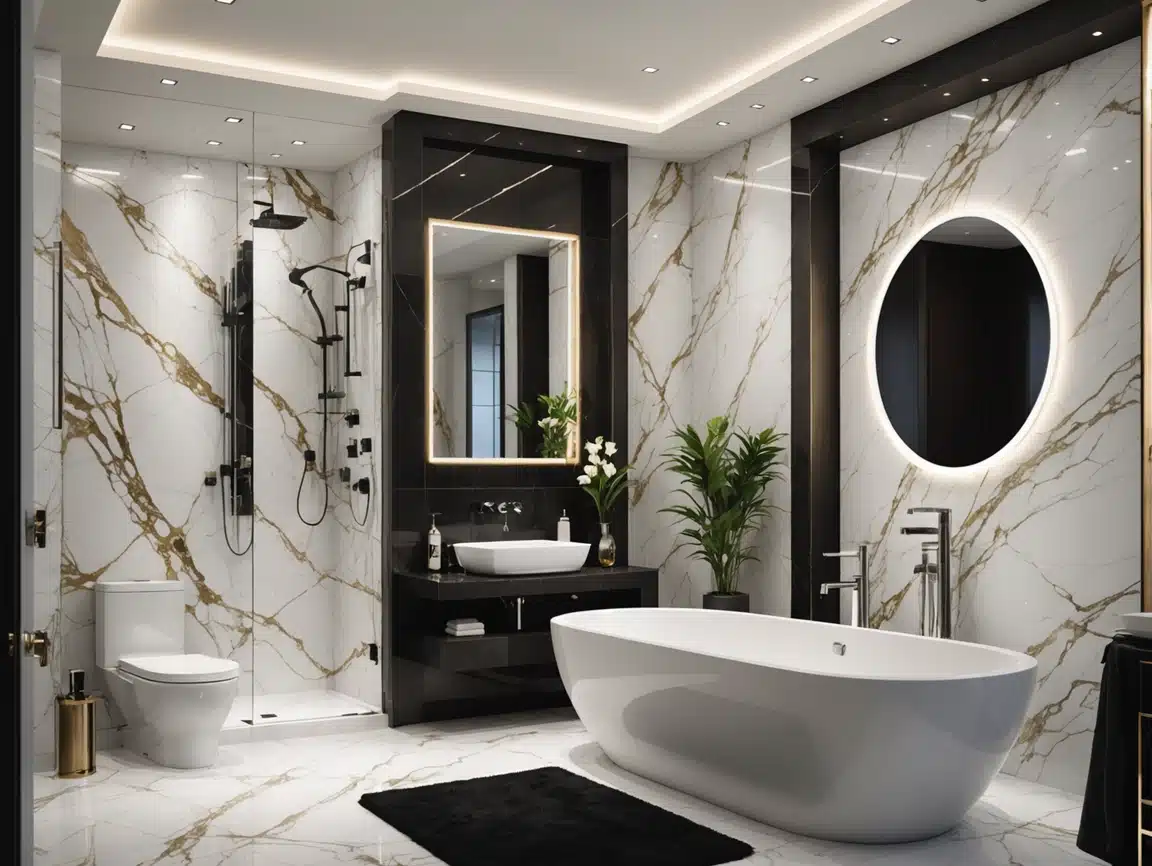What Are the Pros & Cons of PVC Panels?
PVC Wall Panels: Simple Pros & Cons (2024)
The truth about plastic walls – good and bad
🔥 Quick Facts
| Good Points | Bad Points |
|---|---|
| ✅ Cheapest ($1.50/sqf) | ❌ Bends in heat (hot kitchens) |
| ✅ Waterproof | ❌ Chemical smell when new |
| ✅ Easy DIY install | ❌ Few style choices |
| ✅ Easy clean | ❌ Turns yellow in sun |
| ✅ No gaps | ❌ Scratches stay forever |
💡 Smart Tip: WPC panels fix these problems but cost a bit more. See PVC vs. WPC
😀 The Good Stuff
1. Super Low Cost
| Material | Total Cost (100 sqf) |
|---|---|
| PVC | $150 |
| WPC | $445 |
| Real Wood | $870+ |
| Best for: Short-term use, garages, rentals |
2. Stops Water & Mold
- ✅ Test proof: Almost no water soaking in
- ✅ Great in: Wet basements, shower areas
- ❌ Unlike wood: Won’t swell in damp air
3. Quick DIY Fit
- No tools needed:
- Peel-and-stick backs
- Click-together edges
- Renters love it: No damage to walls
4. Wipe-and-Go Care
- Easy cleaning:Mix vinegar + water → wipe dry
- ❌ Never needs: Sealer, sanding, or paint
5. Light & Fits Anywhere
- Very light: 30x lighter than stone
- Sticks to: Drywall, tile, concrete
☹️ The Bad Stuff
1. Hates Heat
- Bends at: Hot temps (>40°C/104°F)
- Hot spots: Near ovens, sunny windows
- Fix: Use WPC panels (handles 80°C/176°F)
2. Chemical Smell
- ❌ Has bad stuff: Phthalates + heavy metals
- ❌ Banned in: EU kid’s rooms
- Safer pick: WPC panels (no phthalates)
3. Few Looks
| Type | Style Choices | Lasts |
|---|---|---|
| PVC | 6-8 flat | 5-7 years |
| WPC | 200+ 3D | 25+ years |
- Problem: Fake wood looks cheap close up
4. Scratches Stay
- Can’t fix:
- Scratches
- Sun fading
- Dents
- ❌ No way to: Sand or repaint
5. Fire Worries
- ❌ Catches fire fast
- ❌ Not allowed in: Tall buildings, hallways
- ✅ Safer: WPC Class B1 (fire resistant)

💎 Other Wall Panel Options
| Feature | PVC | WPC | Cement |
|---|---|---|---|
| Price/sqf | $1.50-3 | $4-7 | $8-15 |
| Lasts | 5-10 yrs | 25+ yrs | 30+ yrs |
| Earth-Friendly | ♻️ 0% | ♻️ 80% | ♻️ 40% |
| Install | Very easy | Easy clips | Hard |
| Guarantee | 1-3 yrs | 10-15 yrs | 20 yrs |
| Sun Safe? | ❌ No | ✅ Yes | ✅ Yes |
⚠️ Big Issue: PVC panels lower your home’s value – wood/WPC add worth.
💡 Only Pick PVC If:
- Money is very tight
- Using short-term (<3 years)
- Not in homes (e.g. dog washes)
- No sun/heat on walls
🛡️ Want Better? Try WPC
Switch to WPC (Wood-Plastic Mix) to:
- 🌞 Beat the heat
- 🌿 Stop chemical risks
- 🪵 Get real wood looks
- ♻️ Use recycled stuff
- 💰 Costs only $0.15/sqf more!
Upgrade to Safer WPC Panels →
(Free samples – see before buying)
❓ PVC Questions Answered
Can I hang shelves on PVC?
❌ No! Max 15 lbs – screw into wall wood behind
Can PVC be recycled?
❌ Hardly ever (less than 9%)
Best glue for PVC?
Special panel glue (ask for “MS polymer”)
Why see bubbles?
Water trapped → peel off and re-glue
“Changed bent PVC shower walls to Witop WPC – still perfect after 5 years!”
– Elena K., Hotel Upgrader
🔍 Search Helpers:
PVC wall panels good and bad • PVC vs WPC • Plastic wall panels
Are PVC panels safe? • Cheap wall panels • WitopDecor review
✅ Why You’ll Love WPC
- 🛡️ 15-Year Promise – industry’s best
- 🚚 Fast US/EU Shipping – under 5 days
- ✂️ Perfect Edge Cuts – fits outlets clean
- 🎨 200+ Looks – like real wood & stone
- 🌱 Eco-Made – cleaner world
Better walls made simple – where smart buys meet beauty. 🏠
Free samples
In recent years, composite products have become more and more popular all over the world. We believe you will also be interested in this new material. If you are interested, you can come to consult us. We have a professional service team that can not only answer any questions you may have but also provide you with free samples. Let you better understand the composite products. There is no doubt that composite wall panels will be the new future.
Share

James is a content creator and decorator with five years of experience designing home decor. In his daily life, james is constantly on the lookout for the latest, great examples of house design and further optimizes his solutions. Additionally, he writes articles related to outdoor design, interior design, and architectural decorating materials to help brands build more engaging relationships with their audiences.




